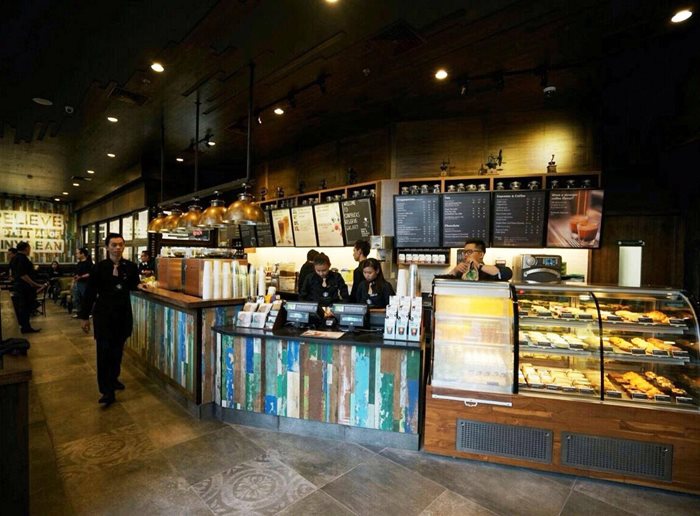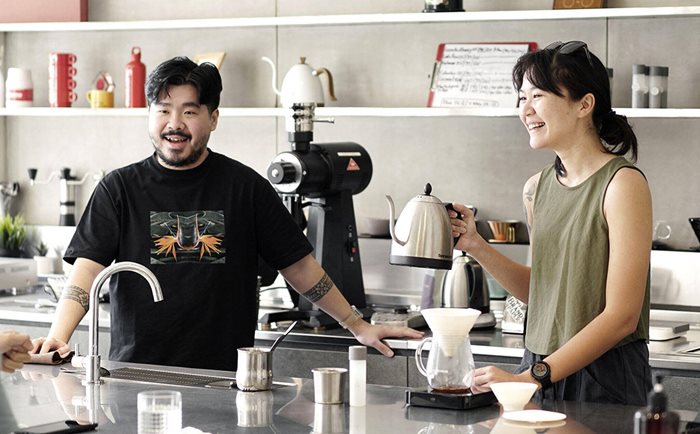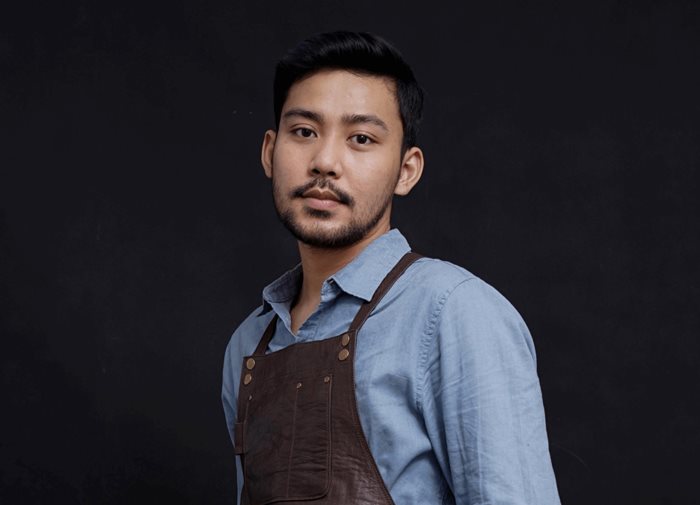Premium coffee has historically been out of reach for many Indonesian consumers. However, this dynamic is rapidly changing with the expansion of international coffee chains and a new crop of home-grown operators making one of the country’s prime exports more accessible than ever, reports Isabelle Mani
.jpg.aspx?lang=en-GB&width=700&height=394)
A Klinik Kopi outlet in Yogyakarta, Indonesia | Photo credit: Muhammad Fawdy
The Indonesian coffeeshop market has developed significantly in recent years. While premium coffee was once considered an unaffordable luxury largely aimed at tourist trade, established international coffee chains and a new generation of domestic brands are making café culture more accessible than ever for Indonesia’s 274 million consumers.
A vibrant blend of local and international coffee culture, technology and convenience, World Coffee Portal data forecasts the total Indonesian branded coffee shop market will exceed 4,000 stores by 2025.
Indonesia’s coffee connection
Kopi – the Indonesian word for coffee – has been ingrained in local culture since the 16th century, when the Dutch brought coffee seeds to the island of Java, home to the capital, Jakarta. Today, Indonesia is the world’s fourth-largest coffee producer by volume, farming arabica and robusta from seven major origins. It is also the second-largest exporter of specialty arabica in the world.
Historically, Indonesians consumed soluble and instant coffee as most high-quality green beans were exported and prohibitively expensive to locals. It is common to see street vendors selling instant coffee across the archipelago nation’s main cities, including Jakarta, Sumatra, Medan, Bandung and Surabaya.

A Starbucks store in Galaxy Mall in Surabaya, Indonesia | Photo credit: Courtesy of Starbucks
However, these urban centres are also increasingly home to a growing market of international branded coffee chains. Starbucks entered Indonesia in 2002 and today operates 500 stores in the country, with other chains, such as McCafé and The Coffee Bean & Tea Leaf, also gaining market share.
Robby Firlian, an Indonesian champion barista and owner of the specialty coffee shop 7 Sleepers in south Jakarta, credits foreign coffee chains as pioneering a shift towards Indonesians embracing local coffee, quality and variety. He believes these branded coffee chains established the template for the specialty coffee scene and enabled local branded chains to prosper.
“Presenting unique products that are widely available with affordable prices contributed to advancing business development in this industry,” says Firlian.
In addition to a burgeoning specialty segment, Indonesia’s coffee chain market is increasingly characterised by technology, value and convenience, with the launch of domestic brands, such as Kopi Kenangan, Fore Coffee and Kopi Janji Jiwa.
“Indonesians have been very early adopters of integrated super-apps, and technology”
Anthony McEvoy, CEO, Starbucks Indonesia
In early 2020 Singapore-based Flash Coffee chose Jakarta to launch its digital-first coffee shop concept and has since scaled to nearly 90 stores in the country.
These companies have built business models around value and technology to keep prices competitive. Operations typically involve smaller pick-up shops with little or no seating with orders made via in-house apps or food delivery platforms, such as GoFood and GrabFood.
They have also invested heavily in social media, influencer marketing and encouraging brand fidelity with loyalty programmes and discounts.
Sourcing coffee and ingredients from Indonesian producers has been an important strategy to gain favour among local consumers, with most chains offering a variation of
kopi susu, a cold coffee and milk beverage sweetened with brown sugar or gula aren (palm sugar).
When Kopi Kenangan launched in Indonesia in 2018, there was a “huge missing gap” in the coffee shop market, says the chain’s Public Relations Director, Ruth Davina. Back then, espresso-based coffee was almost exclusively available at foreign chains or specialty coffee shops at a steep price for the average consumer of around Rp 40,000 ($2.70).
“Unique products with affordable prices contributed to advancing business development”
Robby Firlian, Indonesian champion barista & owner, 7 Sleepers, Jakarta
With that figure amounting to nearly a third of the average workers’ daily wage, Davina says most domestic chains have moved to reduce coffee prices to around $1.30 per cup in a bid to become more accessible.
Covid-19 has also influenced Kopi Kenangan’s strategy over the last two years, with the company shifting from a largely offline business to leveraging technology to grow delivery and e-commerce sales.

Hiro Lesmana (left), an Indonesian SCA champion barista and Head of Operations of the hospitality operator and services group PT Dua Biji Kopi | Photo credit: Courtesy of Hiro Lesmana
As trading restrictions began to ease the company launched a smaller-scale retail concept focused on convenience, such as app-enabled pick-up and delivery. Today, 30% of Kopi’s sales come from its app, which also provides insights on offline conversion rates and captures customer data.
“We created a grab & go coffee model with a space-conscious concept, which lowered our operational costs and enabled us to scale quickly. However, we still maintained quality by using top-of-the-line machinery and high-quality raw materials,” Davina says.
A focus on technology is, however, not exclusive to convenience-focused coffee chains. For years Starbucks has been utilising technology to engage Indonesian consumers. According to Starbucks Indonesia CEO, Anthony McEvoy, Indonesian consumers have been eager adopters of app-based transactions, with the chain launching its mobile app in Indonesia back in 2016.

Robby Firlian, an Indonesian champion barista and owner of the specialty coffee shop 7 Sleepers in South Jakarta | Photo credit: Courtesy of Robby Firlian
“Starbucks Mobile Order & Pay makes it easy for customers to order coffee without queuing directly from the Starbucks app. Indonesians have been very early adopters of integrated super-apps, and technology usage is increasing with each generation as they become ever more comfortable with it,” McEvoy says.
According to McEvoy, beverage delivery also continues to grow following the pandemic due to the demand generated within communities for hybrid working.
Joe versus Java?
In 2022, Kopi Kenangan became Indonesia’s largest branded coffee chain, operating more than 600 locations across 45 cities. In December 2021, the company attained coveted ‘unicorn’ status after a new funding round valued the business at more than $1bn. Kopi Kenangan is now planning to take its first steps towards global expansion, starting with Southeast Asia alongside domestic expansion.
“We plan to have 1,000 Kopi Kenangan stores and expand our reach to Southeast Asia by the end of 2022. Our mission is to introduce Indonesian coffee to the global market, not merely as a commodity, but as a brand,” explains Davina.
Competition among convenience focused coffee chains is, however, growing, with affordability a crucial component for Indonesians “with no particular brand loyalty,” says Hiro Lesmana, an Indonesian SCA champion barista and Head of Operations of the hospitality operator and services group PT Dua Biji Kopi.
Nevertheless, Lesmana says locals still have high expectations from branded coffee chains, including “new trendy flavours, discounts and other promotional advantages.” In contrast, he says specialty coffee consumers are more concerned with taste, quality and ethical sourcing.
Rather than presenting a new competitive front, Starbucks’ McEvoy indicates Indonesia’s value-focused coffee chains are helping to boost the adoption of coffee shop culture across the country. He believes there is a place for each brand to develop its niche in the Indonesian market as coffee consumption continues to grow.
“Our mission is to introduce Indonesian coffee to the global market”
Ruth Davina, Public Relations Director, Kopi Kenangan
“We perceive the local brand chains as enhancers rather than rivals as we establish the habit of drinking coffee,” he says.
Both Lesmana and Firlian say they were initially cautious that a new wave of branded coffee shops in Indonesia could damage the specialty segment. “On the contrary,” says Lesmana, “branded chains fill a gap in the coffee market and engage young generations in valuing local offerings. Now Indonesians are drinking more coffee than ever.”
In addition, Lesmana says locals now better understand specialty coffee and are now actively seeking new varieties.
“It was hard introducing specialty coffee to locals a decade ago, but the past five years have been very progressive both in the production and retail levels. The reason is more media exposure, broader knowledge, and technology and innovation are within reach,” he says.
Local coffee producers also acknowledge that the new wave of branded chains has changed the coffee market landscape, explains Lesmana. “Farmers who produce huge yields of commodity quality coffee and the new generation of farmers who push for high-quality specialty coffee can now coexist in terms of demand.”
It’s clear from the rise of branded coffee chains in specialty operators that Indonesian consumers are increasingly embracing a new affordable luxury when it comes to premium and specialty coffee.
While a new wave of branded coffee chains is providing everyday coffee drinkers with unprecedented levels of quality, convenience and choice, a burgeoning specialty segment is also widening the audience for Indonesia’s world-class coffees at home – and the whole market appears richer for it.
This article was first published in Issue 12 of 5THWAVE magazine.
Subscribe to 5THWAVE to receive each edition in print and digitally or sign up to our newsletter and be the first to read the latest articles and updates on World Coffee Portal research.
